The Culture Of Benin
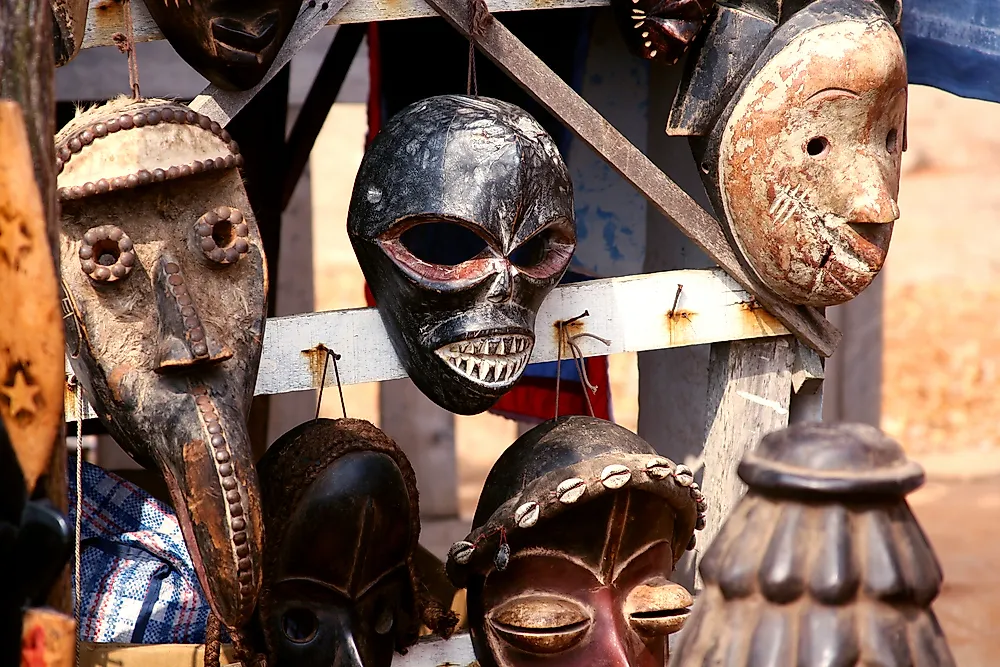
- Once a French colony, Benin is now a democratic republic that has experienced moderate stability despite a history of political unrest.
- Benin was a significant source of slaves in the time of the Atlantic slave trade.
- Vodun (voodoo) originates from Benin and neighbouring countries.
- Beninese people place a high importance on politeness and hospitality.
- The Gelede Festival in the country is held annually in honor of women, especially mothers.
Despite the tumultuous political past of Benin, coupled with low economic growth because of the strife, the culture of this country remains strong. It is also acclaimed internationally for the quality of music and the rich tradition that is still practiced in the midst of globalization, which is having significant impacts on the world.
Currently, Benin is a multiparty democracy, and it has experienced relative stability since 1991 when Marxism was done away with in favor of capitalist democracy. The presence of different ethnic groups in the country means that the country contains a diverse mix of cultures, which are different and unique in their respect.
History Of Benin
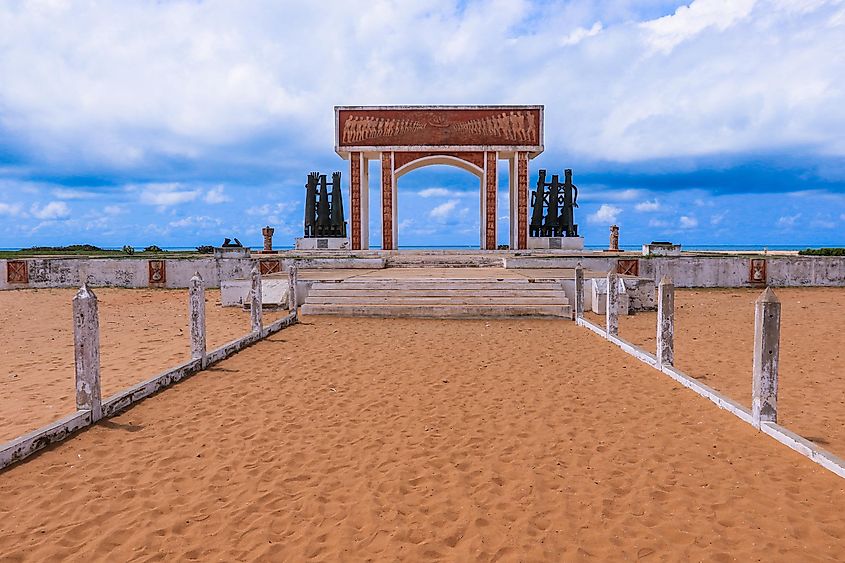
Knowing the history of Benin is helpful in understanding its rich and diverse culture. The country was once a great African kingdom, concentrated in city-states along the Atlantic Ocean. It was here that the infamous slave trade occurred, as slave ships docked here to collect slaves before heading to various destinations, including America.
The Kingdom of Dahomey prospered in the area starting in the 18th century. The ethnic groups Yoruba, Aja and Gbe were found in these lands, but under the Kingdom of Dahomey, the Fon ethnic group was the main dominant group. Customs like military training of young boys was compulsory to prepare them to serve in the Dahomean army. The rulers often sold off prisoners of war to slave traders. In annual ceremonies, the captives would be killed in front of the public. But in later years, the Kingdom’s power began to wane due to the international ban on the slave trade. Such conditions allowed the French to take over in 1892 and impose a colonial rule that lasted until 1958.
After independence in 1960, the political situation became very charged as ethnicity-based disagreements erupted. Numerous coups by the military made the situation worse. A Marxist government came to power in 1975 and foreign investment dried up as businesses were nationalized and Benin began the descent into autocracy. The end of the Cold War brought a wind of democratization in Africa too, and Benin renounced Marxism and adopted a new political structure. Undoing the damage that political instability caused to the economy has been a lengthy process.
Social Beliefs and Customs

Adhering to social conventions of politeness and hospitality is very important in Benin. It is customary to shake the hand of every person when entering and leaving a professional or social function. When Beninese are hosting people, they always offer food and drink, and it is considered rude to refuse these offerings. It is considered improper to eat or offer someone an item with the left hand.
Names of the citizens are strictly traditional despite the growing presence of Christianity and Islam in the country. Though they were colonized by the French, it did not change the culture of naming their children using traditional names because of the Akan influence, which requires parents to name their children basing on the date and week in which they were born.
Beninese Music
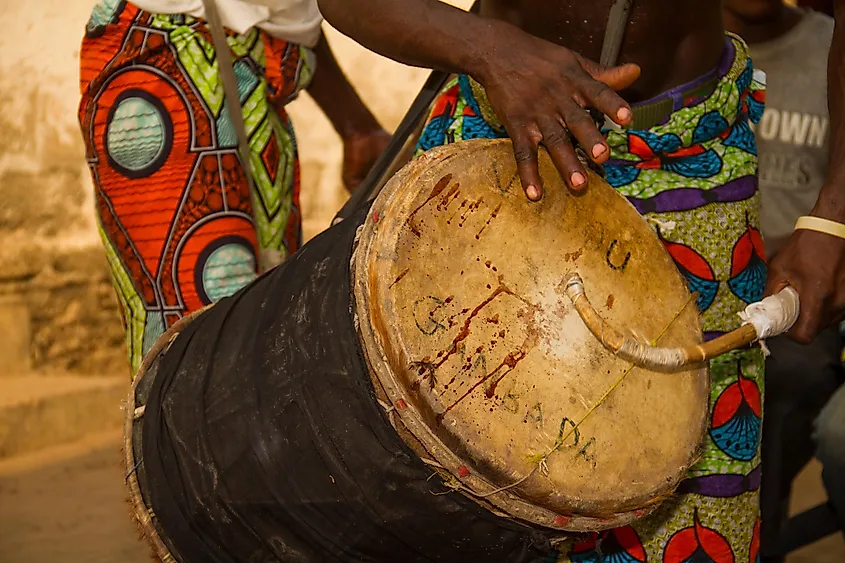
Music has made Benin famous around the world stage. Musicians like Angelique Kidjo get international acclaim due to the use of the traditional drum beats and their authentic compositions that enthrall audiences in international and local festivals. The music native to Benin has undergone notable evolutions due to interactions between locals and foreigners. The sounds of Benin music is a combination of its traditional sounds, French carabat, rock and roll and even rhumba.
Beninese Food
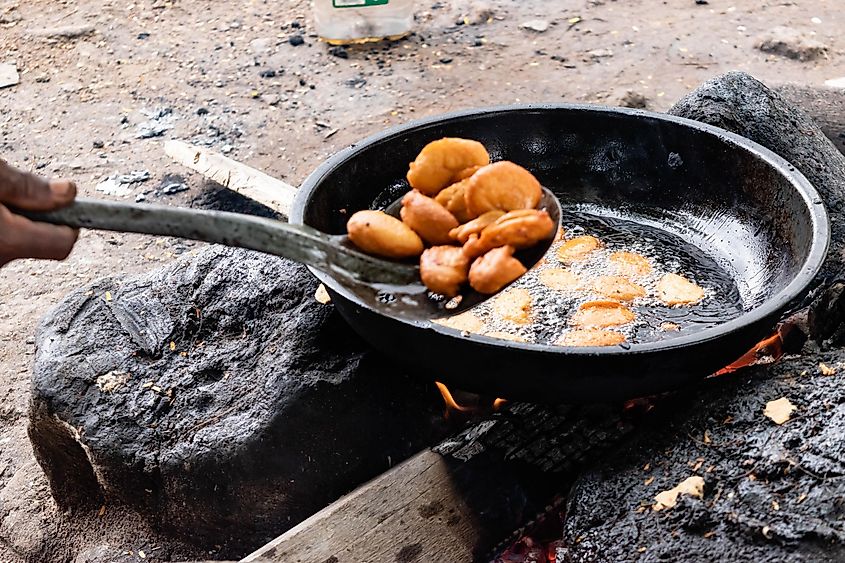
Food also plays a significant role in defining the culture of Benin. Yams are the preferred main ingredient, while corn is used to make a dough. Traditional cuisine is prepared using a variety of sauces. Peanuts and tomatoes are often used in making the sauces that accompany the main course. Other foods that the people of Benin consume are chicken, beef, pork, and fish, since fishing is practiced along the communities living at the coast and on riversides. Agriculture is the main economic activity in Benin, so communities rear chicken, goats, cows, and pigs. Bushmeat is also consumed in Benin, especially among the communities that live in the North. A popular dish is called Acaraje, made of black-eyed peas rolled into a ball, deep-fried and served with sauces made of shrimp, cashews and palm oil, among other ingredients.
Vodun Religion In Benin
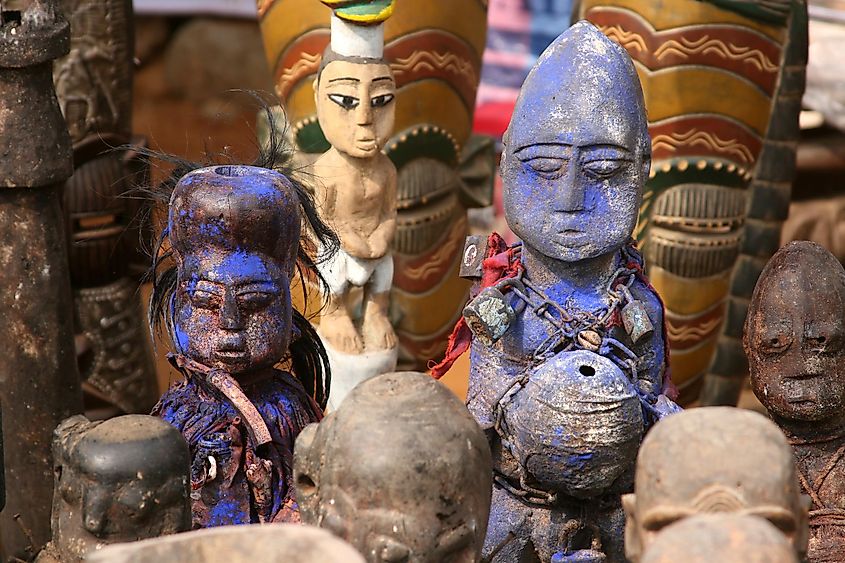
Vodun (voodoo), an Indigenous spirituality, is practiced in Benin where shrines are found in almost every part of the country. In Cotonou, the shrines are open for display where tourists are offered a show of how the whole ceremony is conducted. It is possible during festivals in which there is a high guaranteed number of tourists coming to Benin. A Vodun museum is also found in the capital city where artifacts are put on display for tourists to see. The practice is recognized as an official religion. It has a national holiday called Vodun Day (Fête du Voudun). Vodun spirituality recognizes several deities all under the influence of the creator, Mahu, often personified as an old woman or a mother.
There are about 100 divinities (also called voodoos) who represent different kinds of phenomena, like Sakpata which represents illness, healing, and earth. Vodun priests ask these gods to intervene on behalf of the believers, who offer sacrifices to the gods through the priests. Gifts such as Chicken or sheep are slaughtered to the gods, or the priests can pour alcohol to the ground as another form of sacrifice. Despite the negative portrayal of Vodun in the international press as well as in the movies, the local people refute the claims that it is all about sorcery and evil. It is claimed that the voodoo gods protect the good people by poisoning enemies hell-bent on destruction, as well as providing for the believers.
Cultural Festivals In Benin
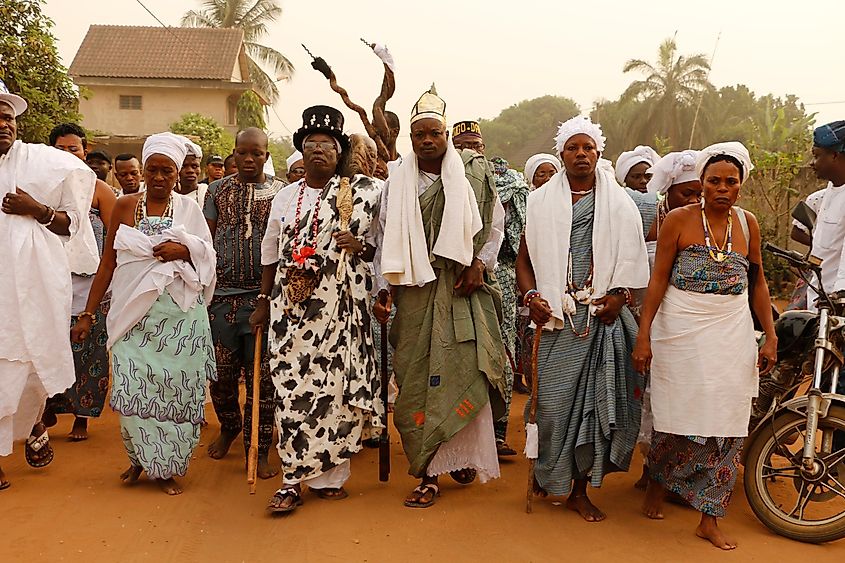
Benin also plays hosts to several festivals of significant cultural value. The Gelede festival is held annually in celebrations of mothers. The festival takes place between the dry season and the rainy season. In the Gelede festival, well-choreographed dances are shown together with an array of traditional attires worn by the participants. Men often wear covers to entertain the women as well. Other festivals are the Quintessence Film festival where Beninese films are shown alongside international films.











